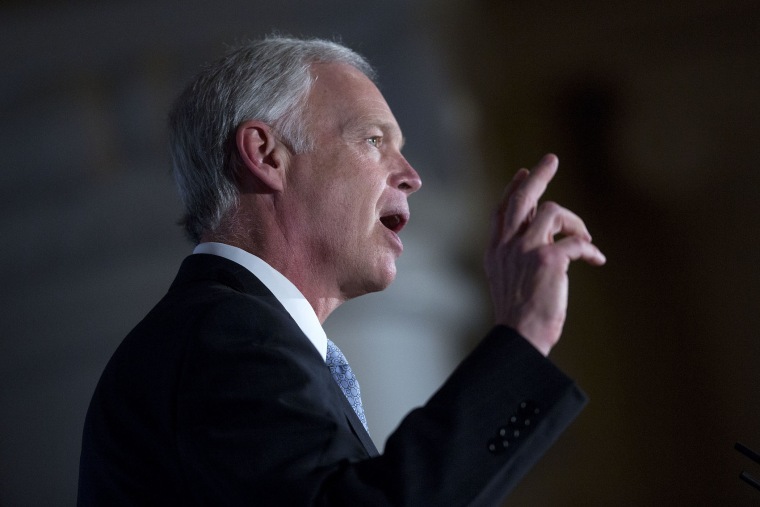Nearly six months ago, Sen. Bill Cassidy (R-La.) acknowledged, "There's a widespread recognition that the federal government, Congress, has created the right for every American to have health care." Whether Cassidy still believes this is an open question -- the Louisiana Republican seems to have changed quite a bit -- but the question of whether Americans have a right to health care is hardly a resolved question within his party.
For example, Sen. Ron Johnson (R-Wis.) spoke to a group of high-school students near Milwaukee on Friday morning, and he heard from one student who asked, "Do you personally consider health care as a privilege or a right?" The far-right senator replied:
"I think it's probably more of a privilege. Do you consider food a right? Do you consider clothing a right? Do you consider shelter a right? What we have as rights is life, liberty, and the pursuit of happiness. Past that point, we have the right to freedom. Past that point everything else is a limited resource that we have to use our opportunities given to us to afford those things."Sen. Rand Paul talked about this on the floor of the Senate. He's a doctor. He said the minute you consider health care a right, well, who's going to satisfy that right? And those people who have the skills to satisfy that right, what does that make them if they're forced to provide you with that rightful product or service?"
Johnson didn't explicitly answer that last question from his response, but the argument Sen. Rand Paul (R-Ky.) presented in 2011 was that if Americans have a guaranteed right to health care, that means "you have a right to come to my house and conscript me. It means you believe in slavery. It means that you're going to enslave not only me, but the janitor at my hospital, the person who cleans my office, the assistants who work in my office, the nurses."
The Kentucky senator added at the time, "Basically, once you imply a belief in a right to someone's services -- Do you have a right to plumbing? Do you have a right to water? Do you have right to food? -- you're basically saying you believe in slavery."
Six years later, many Americans might hear Rand Paul's argument and find it ridiculous. Ron Johnson, however, finds it a persuasive reason to deny the existence of Americans' right to health care.
I don't imagine the Wisconsin Republican is open to alternative ideas on the subject, but the question Johnson and his allies should take a moment to consider is what it means to have a right to "life" -- and the severe limits those with that right face when they lack access to quality and affordable medical care.
For example, if an American needs chemotherapy to protect and extend her life, Johnson's argument is that she may enjoy the "privilege" of the cancer treatment if she can afford insurance, the cost of the care, or both. If not, then her right to "life" will depend almost entirely on her personal finances.
In other words, in Johnson's vision, your right to life effectively means you have the right not to be killed -- but that's all it means.
Johnson, it's worth noting for context, is one of the principal architects of the recent Cassidy-Graham proposal, which if implemented, would've increased the ranks of the uninsured by millions of Americans. The Wisconsin Republican was re-elected last year with 50.2% of the vote and won't face voters again until 2022.
